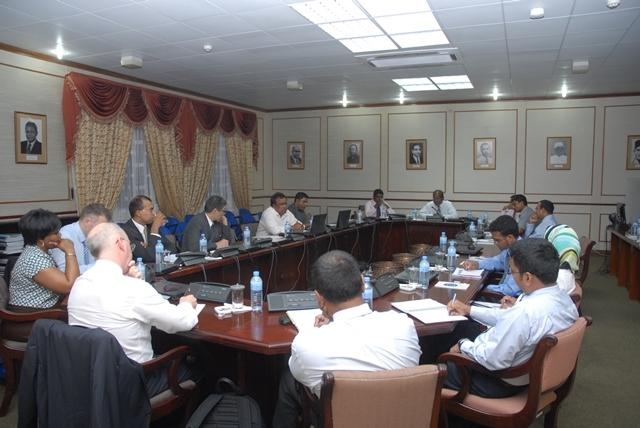
International Monetary Fund (IMF) has warned that if Maldives does not reduce its expenditure, its reserve might run out and the country may end up in poverty.
Presenting IMF’s findings to Members of Parliament yesterday, Chief of the IMF Mission currently visiting Maldives Jonathan Dunn said that the economy of Maldives is in a delicate situation, and that immediate steps have to be taken to reduce government expenditure.
Because the Maldives is dependent on imports, government spending on large projects poses the danger of completely running out of the government reserves - a danger which already exists. If the reserve runs out, there will be no money to finance imports.
Dunn said that if we fail to act now, Maldives will be in the same economic situation as Seychelles about three years ago.
He also said that the government budget is short of about Rf 2 billion of the accounts receivable, and the budget does not indicate how all the expenditures can be recovered.
“Moreover, the money pertaining to extending the lease period of resorts is to be received in instalments. The lump sum amount indicated in the budget will not be received. Ceasing to charge import duty and replacing it with GST also results in a huge reduction in government income,” Dunn said.
Noting that a large portion of GST comes from the tourism industry, Dunn said that due to the reduction in tourists arriving from China and Europe, the income from GST will be lower than estimated.
“The expenditures have not been under control since 2009. They have been rising, and we have been warning since then,” Dunn said.
He said that not much can be done economically to resolve these issues. Money can be printed, or an additional loan can be obtained from another country. However these steps are not recommended, considering the country’s current economic situation.
He advised that the only thing to do now is to reduce all expenditures except for what is absolutely necessary. He suggested revising all salaries and allowances paid to civil servants. In order to increase income, GST needs to be increased from 6 to 15 percent. Import duty has to recommence, and bed tax should be increased from $8 to $12, and prolonged till 2013.
Dunn also said that electricity subsidy system should be revised. Currently, even the richest man receives this subsidy, and this has to stop. Aasandha also should be revised, such that an income is received from the scheme.
“These are tough steps to take. It requires your [MPs’] cooperation. It is your responsibility as well. This is necessary for the nation. Immediate steps have to be taken. This is the reality, we have to face it,” Dunn said in conclusion of his presentation.